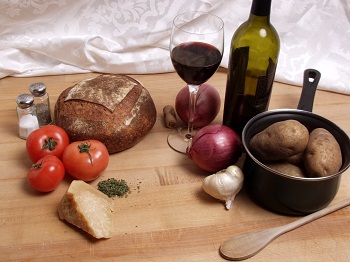By Elizabeth Tansing, Director, State Government Relations, Food Marketing Institute

New Jersey has long frustrated the business community and its residents with archaic liquor license laws. So has Massachusetts, and as it turns out, the two are intertwined. Massachusetts enacted legislation (S. 2033) in 2011 which is similar to a bill that the New Jersey legislature has failed to act on. But things could change for New Jersey in 2016, thanks to a recently-completed research study commissioned by the Food Marketing Institute (FMI).
The Impact of Changes in Off-Premises License Allocations in Massachusetts and The Implications for New Jersey spells it out: Smaller retailers in Massachusetts are not being overrun by supermarkets and other large retailers, since passage of S. 2033.
The FMI study found that of the 50 licenses (out of more than 2,800) granted to holders who already held three licenses in Massachusetts, just 32 percent (16) were for supermarkets. The rest were wholesale clubs, c-stores, package stores, or discount stores.
The Massachusetts revised law allowed the number of off-premise alcohol licenses owned by a single entity to increase from three to five in 2012, and the FMI study shows economic gains from that one year alone. The one-year change in Massachusetts has earned $16.9 million in additional economic activity, as well as the creation of 150 new jobs, and it opened up the playing field. In 2016, the law allows seven licenses, and in 2020, a maximum of nine licenses may be held by a single owner.
Currently in New Jersey, a single company can hold just two off premise licenses - this, from the nation’s most densely populated state. As with many overly-restrictive regulations, folks have a way of getting around them. In New Jersey, family-owned operations and co-operatives have the ability to end-run the limit by creating multiple companies, which naturally creates an unfair playing field with winners and losers. And this is exactly what has happened – the archaic law has allowed small package stores to dominate sales and pricing of alcohol, instead of spreading the opportunities, and granting more full-service retailers the ability to sell alcohol along with food, which would mirror what many states already allow.
As with Massachusetts, the New Jersey law allows a secondary economic market. While the licenses are governed by the state, they are sold on the open market. In fact, licenses in New Jersey have sold for up to $1 million. This creates barriers for potential new businesses and heavily burdens others with additional debt.
The New Jersey Food Council is working with a broad coalition to modernize the state’s licensing structure. The coalition is asking the legislature to approve AB 2002, which increases the number of licenses from two to 10 in stages, over a ten-year period. In the past, an obstacle was the concern that smaller stores would be overrun by supermarkets and other large retailers entering the market. The study commissioned by FMI clearly shows that this is just not the case. In the entire Commonwealth of Massachusetts, an average of 13 licenses per year have either been transferred or granted to entities already holding at least three licenses. That represents less than 0.5 percent of licenses granted each year. The geographic spread of these licenses was wide - just four communities had more than one license-holder that also held more than three licenses statewide.
Based on the success of the Massachusetts law, as evidenced by the FMI study, New Jersey should enact legislation to increase the amount of liquor licenses that are currently allocated. This will allow for more equity in the marketplace and reduce barriers for new businesses.

 Industry Topics address your specific area of expertise with resources, reports, events and more.
Industry Topics address your specific area of expertise with resources, reports, events and more.
 Our Research covers consumer behavior and retail operation benchmarks so you can make informed business decisions.
Our Research covers consumer behavior and retail operation benchmarks so you can make informed business decisions.
 Events and Education including online and in-person help you advance your food retail career.
Events and Education including online and in-person help you advance your food retail career.
 Food Safety training, resources and guidance that help you create a company food safety culture.
Food Safety training, resources and guidance that help you create a company food safety culture.
 Government Affairs work — federal and state — on the latest food industry policy, regulatory and legislative issues.
Government Affairs work — federal and state — on the latest food industry policy, regulatory and legislative issues.
 Get Involved. From industry awards to newsletters and committees, these resources help you take advantage of your membership.
Get Involved. From industry awards to newsletters and committees, these resources help you take advantage of your membership.
 Best practices, guidance documents, infographics, signage and more for the food industry on the COVID-19 pandemic.
Best practices, guidance documents, infographics, signage and more for the food industry on the COVID-19 pandemic.
